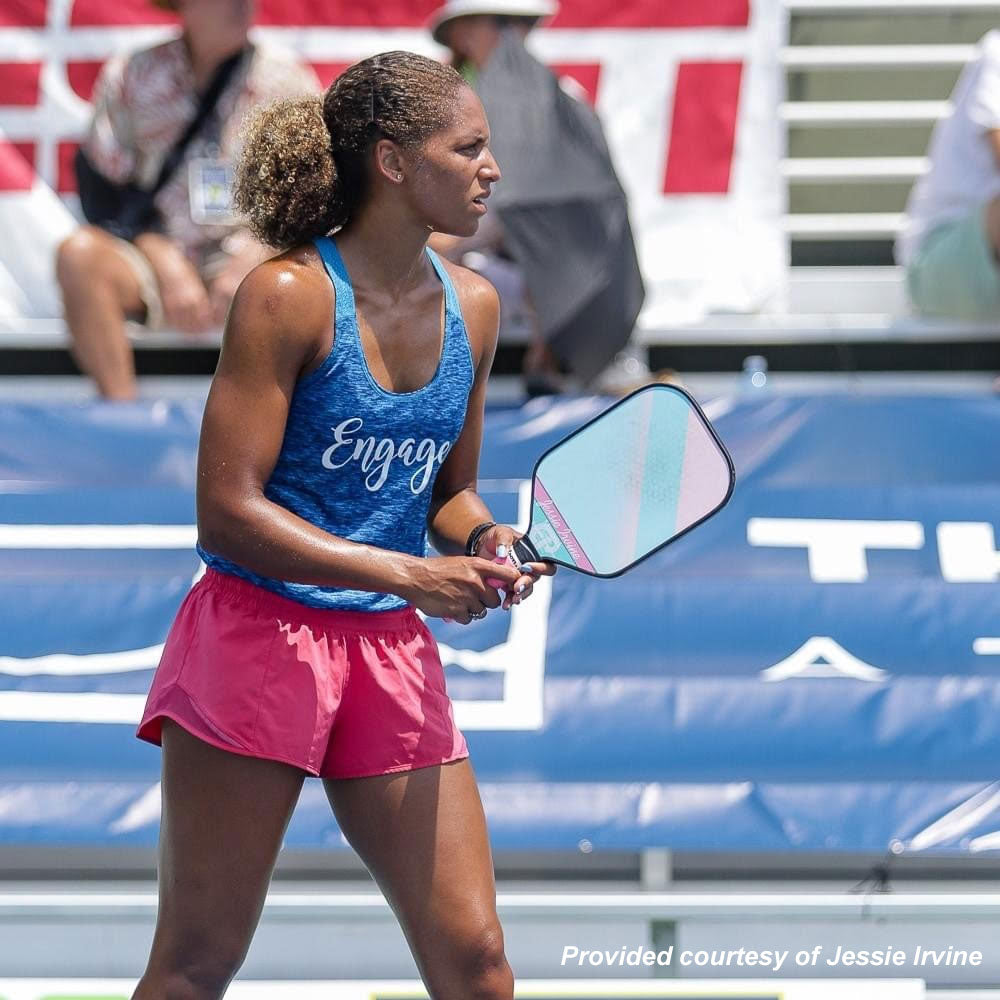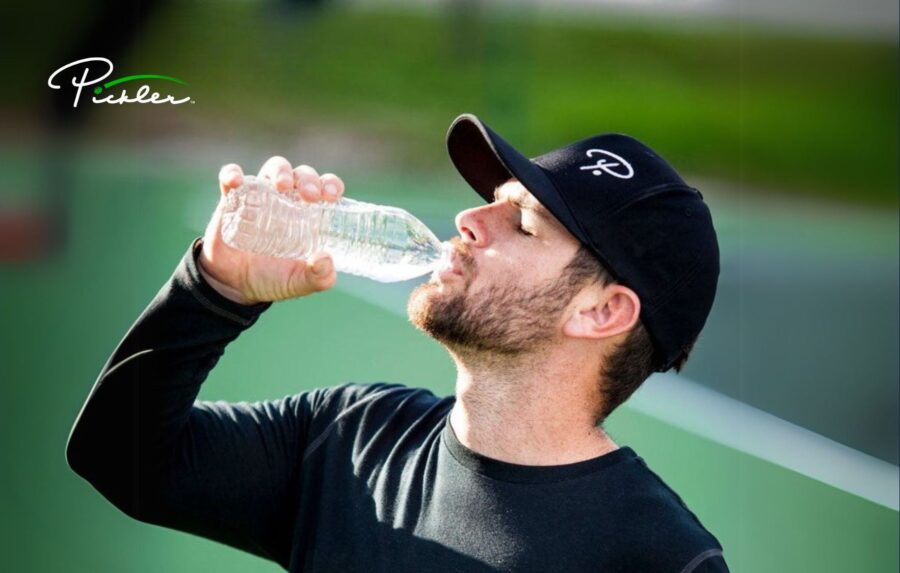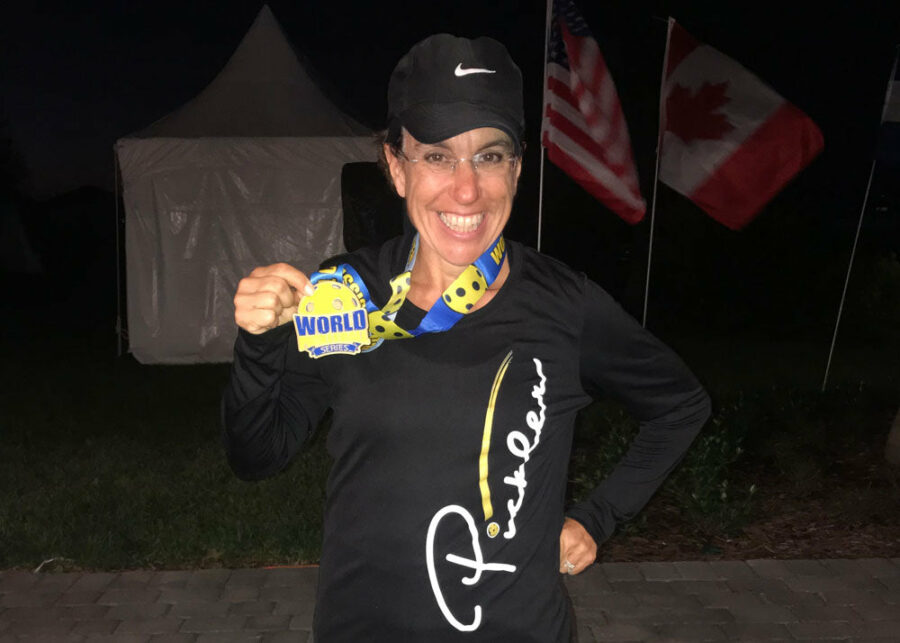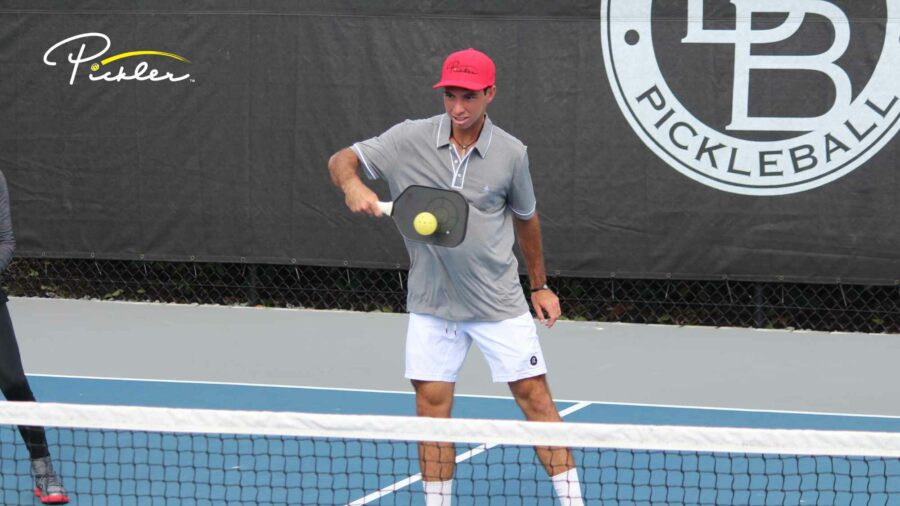Imagine that you fall in love with a sport as a child. You commit your entire childhood to the sport. Practice your craft, harness your skills, and sleep, eat, and breathe your sport. Then, when you are finally on the verge of reaching your dream—being a professional athlete and competing in the sport you love for your career—you are forced to quit and give up on your dream. And, not because you want to, but rather because your body lets you down.
This is exactly what happened to pro pickleball player, Jessie Irvine. Irvine sacrificed her childhood for her love of the sport of tennis. Then, while still a teenager, at the age of 18 or 19, Irvine made the decision to close the door on the game. The decision was difficult, but her body would not let her compete on the court. Irvine was missing cartilage in her joints—so much so, that, when serving overhand in tennis, she would frequently experience pinched nerves that resulted in so much pain that Irvine would not even be able to lift her arm for a couple weeks. The pinched nerves would happen frequently, but at random times, so she would never know when to expect to be sidelined. And, without being able to lift her arm, Irvine could certainly not serve, which mean she could certainly not compete on the tennis court.
This decision to step away from the sport of tennis weighed heavy on Irvine. She struggled to mentally regroup. So, at the young age of 21, Irvine moved across the country from North Carolina to Los Angeles, California, for a fresh start. Irvine knew no one—no family, no friends. She was on her own and looking for a clean slate.
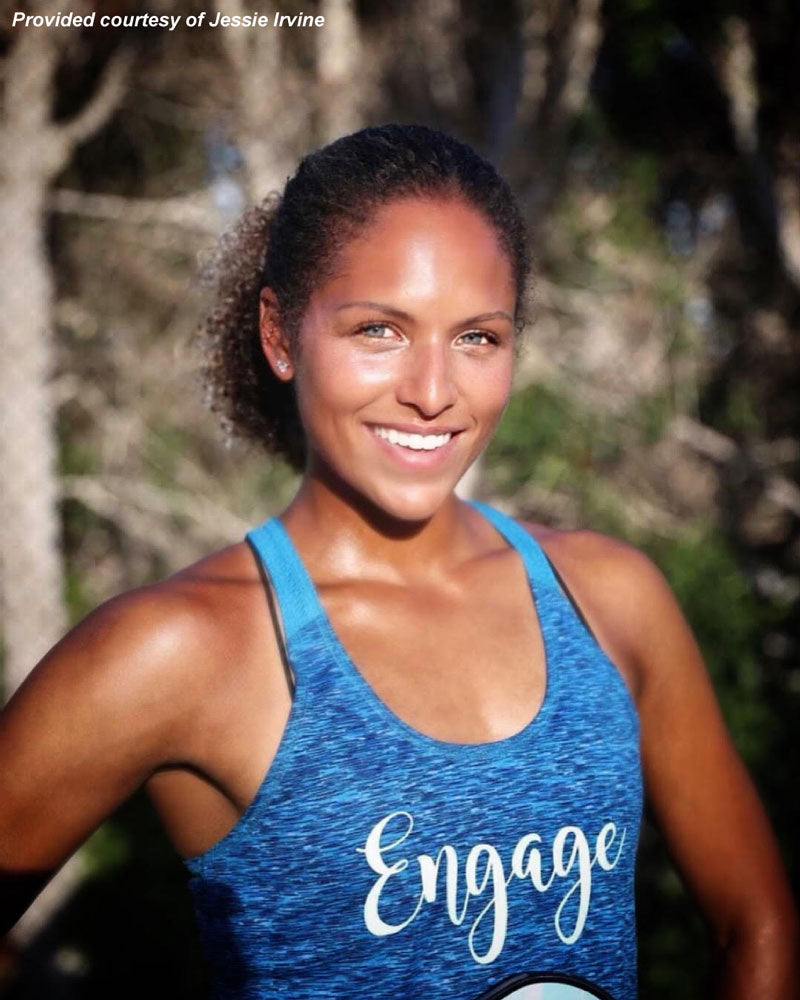
Although far from home, she fell back on something familiar, something that she loves… the sport of tennis. But, this time, in a new role. Rather than competing as a tennis athlete, Irvine took on coaching roles. She coached, and still coaches, tennis. In particular, youth or junior tennis players, which she is passionate about her role in building great human beings through the sport of tennis (as opposed to building only tennis champions).
Through her tennis experience in LA, in 2016, Irvine found paddle or pop tennis, which allowed Irvine the ability to be competitive in a few tournaments every year. However, Irvine noticed that the game was stagnant and not growing. There were few top players and even fewer top female players. But, through her new paddle and pop tennis friends (notably, Roberto Donati), Irvine was introduced to the sport of pickleball just a couple years later in late 2018.
After some minor convincing to try another new sport, Irvine was hooked once she got a paddle in her hand. She loved the fact that pickleball was growing and full of buzz, as well as the fact that pickleball was easier on her body compared to paddle or pop tennis (which was clearly important for Irvine after her struggles with her body as an early age).
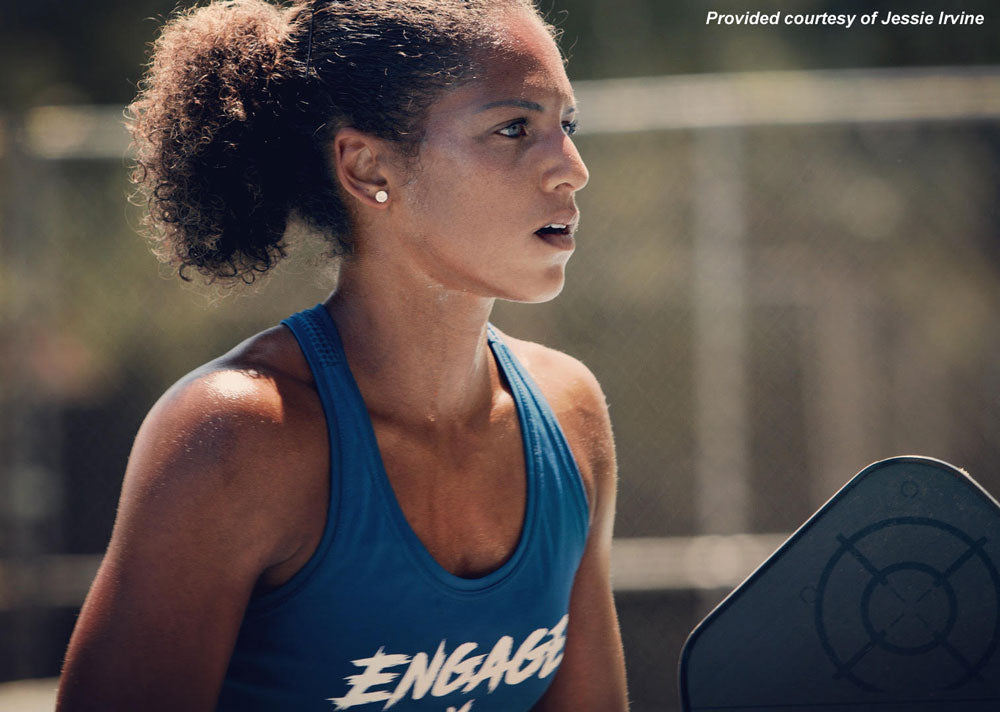
After the sport of tennis closed a door, Irvine found a window of opportunity with the sport of pickleball. And, Irvine is looking to take full advantage of this window of opportunity! Looking to the future, Irvine’s goal is to be one of the best pro pickleball players in each of women’s doubles and mixed doubles. Irvine accurately notes that the two require different games and different mentalities. So, by excelling in both, she believes that she will really achieve her goal of being one of the best.
To reach this goal:
- First, Irvine has cranked up her fitness. She does fitness training at least twice a week, and has lost over 15 pounds on her mission to be a better physical athlete. Irvine accurately notes that physical fitness is critical on the pickleball court, especially after playing for hours and hours during long pickleball tournaments.
- She focuses on injury prevention, as Irvine believes that prevention is better than the cure. While Irvine has less pain and injuries, as compared to tennis (plus, there is no overhand serve to worry about pinching any nerves), she still struggles with a lack of cartilage. As a result, managing pain and injuries with physical therapy and other remedies is important to her process.
- Irvine works on her mental game, as she understands that pickleball demands another level of focus. On the pickleball court, if you lose focus, “bad things” can happen quickly. In tennis, unlike pickleball, if you lose focus, you are able to recover because of how large the court is. Further, the best pickleball players are ones that remain present mentally after a long, grueling day on the court. With that said, to work on her mental game, Irvine trains herself by having long, extended practices, where she stays on the pickleball court for 7 hours at a time. Seven hours may seem like a long time, but Irvine does not play the entire time. Rather, she takes breaks—just like in a pickleball tournament. Then, every time she steps on the court, Irvine focuses on giving 100% effort and focuses on specific skills, which largely include “doing the right things”—in other words, having the correct shot selection, not doing anything fancy, and keeping her focus and intensity up. By elevating her mental game, Irvine is able to avoid a mental lapse causing a physical lapse. She is also able to stay sharper on the court when it comes to strategy, which is so important to the sport of pickleball.
- Since Irvine only plays doubles (and not singles, which is in an effort to extend her pickleball life), Irvine understands the importance of a strong partnership. Unlike her singles tennis career, Irvine feels pressure on the pickleball court, as she is playing not just for herself, but also for her partner. She does not want to let her partner down, who is sharing in her on-court experience with her. She notes that having trust, chemistry, and communication with her partner is crucial, and a strong partnership takes time to build. As a result, Irvine invests in her partnerships, especially because she feels less pressure, and more freedom to play, when she has established a strong partnership.
- Irvine stays in the moment. She wears her emotions on her sleeve, which is evident if you have ever seen Irvine play and have heard her signature “COME ON!” This raw emotion is present when Irvine is at her best.
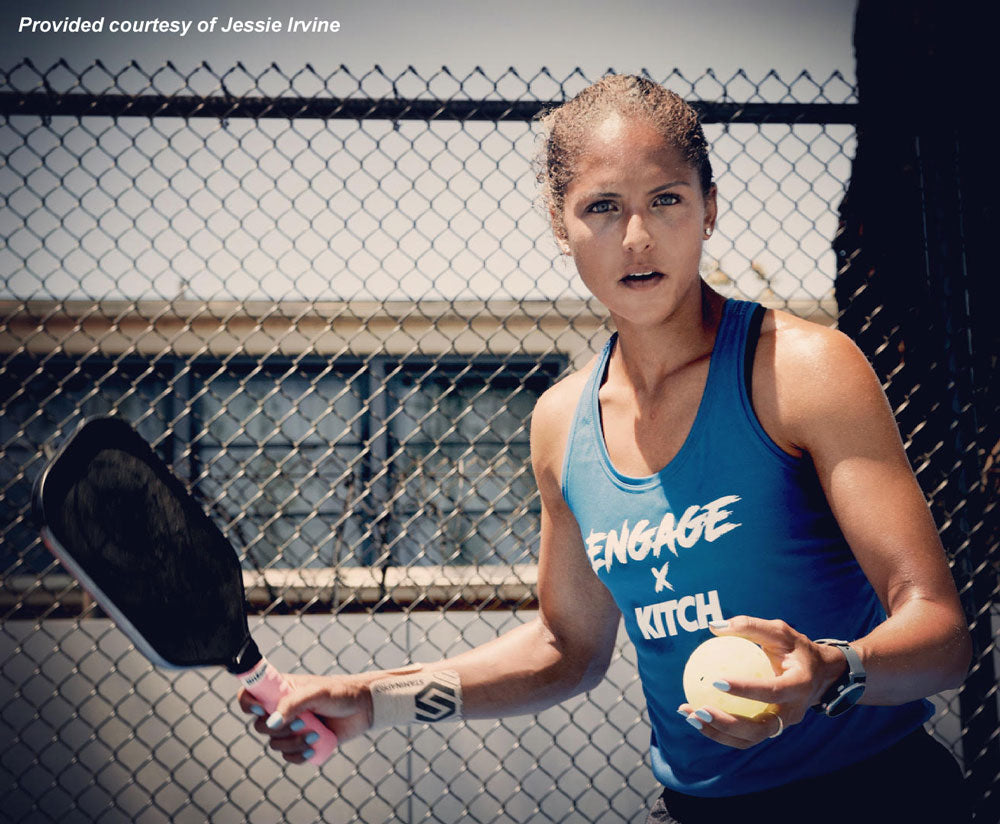
- No matter the result, and no matter how hard Irvine is working to achieve her goal, Irvine always keeps everything in perspective. This could be a result of her youth tennis coaching, as she constantly reminds her students to have balance—work hard and have fun—and to take a deep breath because everything is going to be okay. This could also be as a result of Irvine’s past, which keeps her new competitive outlet of pickleball in perspective. Irvine has a second chance—a new window of opportunity—to compete and be active, which she is incredibly appreciative of.
- And, to top it off, Irvine always carries a little “something extra.” She calls this “something extra” one of her secret weapons and her little cheat to calm the nerves and to remind her to have fun on the court. This “something extra” is her small flask of Malibu Rum in her pickleball bag, which Irvine takes very, very small sips of before every match. Given the amount of activity she undertakes during a pickleball tournament, the amount of fluids she has to intake to stay hydrated, and the small sips of Malibu Rum that she does take, this sounds like the Malibu Rum has more of a mental effect than anything… but it seems to work to help her relax, play her best, and have fun doing it!
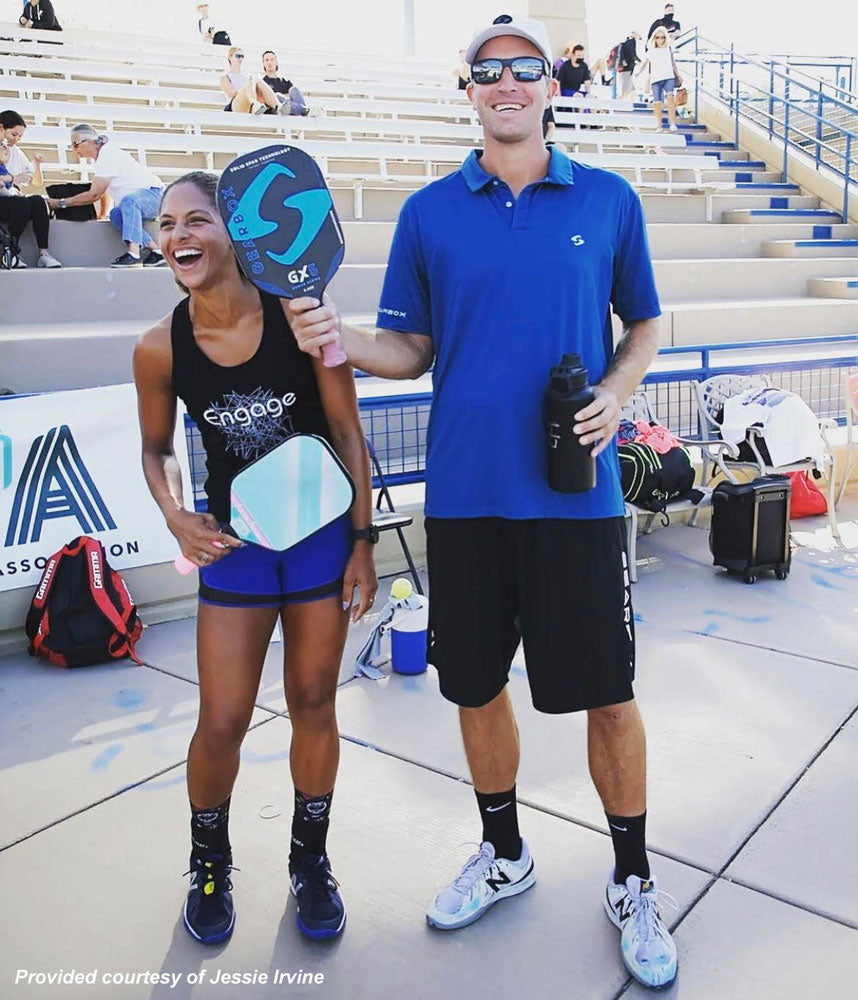
Irvine remains motivated toward this goal to be one of the best, as she feels that she has spent a lifetime competing and making sacrifices to compete. However, because of the early end to her tennis career, she was never fully able to showcase her abilities. Her time was cut short. Now, with the window of opportunity that is the sport of pickleball, Irvine has a second chance to do just that… compete and showcase her talent (which she certainly did just that by winning back-to-back titles with her partner, Catherine Parenteau (which included Irvine’s first PPA women’s doubles title, as well as the Tournament of Champions women’s doubles title, in August 2021), in each case, by taking down the undefeated duo of Simone Jardim and Lucy Kovalova). And, with the effort she is putting in behind the scenes, Irvine will likely be around playing pickleball for a lifetime.

